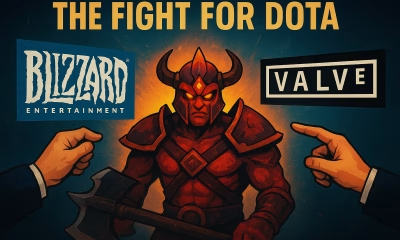Gambling
China’s Regulatory Rollercoaster in the Gaming Industry
In a dramatic series of events that have significantly impacted the global gaming (stock) market, China’s regulatory stance on online gaming has undergone rapid changes. This article delves into the implications of these changes, analyzing the initial introduction of stringent rules and their subsequent removal, and the effects on the gaming industry both in China and globally.

The Initial Draft Rules and Market Impact
On 22 December 2023, Chinese regulators announced a comprehensive set of rules aimed at curbing spending and rewards in video games. This move was a significant blow to the world’s largest gaming market, which had just started to recover. The draft rules intended to set spending limits for online games and included measures such as banning rewards for daily logins, first-time spending, or consecutive spending in games. These are common incentive mechanisms in the industry.
The announcement caused a market upheaval, erasing nearly USD 80 billion in market value from China’s leading gaming companies, Tencent Holdings and NetEase. Tencent’s shares plummeted by up to 16%, while NetEase saw a drop of up to 25%. The rules also affected other related stocks globally, indicating the far-reaching influence of China’s gaming market.
Industry Response and Adjustments
The gaming giants, Tencent and NetEase, responded differently to these developments. Tencent’s vice president, Vigo Zhang, stated that the company wouldn’t need to fundamentally change its business model or operations, emphasizing their compliance with regulatory requirements. On the other hand, NetEase declined to comment.
These regulations were part of Beijing’s ongoing efforts to tighten control over the video gaming sector, which included strict playtime limits for minors and a suspension of new video game approvals in 2021. The 2023 rules were the most explicit attempt yet to curb in-game spending, requiring games to set limits on digital wallet top-ups and banning probability-based lucky draw features for minors.
China’s Unexpected Removal of Draft Rules
In a surprising turn of events, on 23 January 2024, the Chinese gaming regulator removed these draft rules from its website. This removal, occurring right after the expiration of the consultation period, was unusual and led to speculation about potential revisions. The lack of immediate explanation from the National Press and Publication Administration (NPPA) added to the uncertainty.
This development boosted the shares of Tencent and NetEase, which rose by as much as 6% and 7%, respectively. The removal suggested a possible moderation in the government’s stance, following widespread negative reactions from investors, businesses, and the public.
Analysis and Future Implications
The initial introduction of the draft rules and their subsequent removal highlight the unpredictable nature of regulatory environments in significant markets like China. The gaming industry, both domestically and internationally, remains sensitive to such regulatory changes.
The proposed rules, particularly Articles 17 and 18, which sought to ban forced player combat and impose spending limits, were contentious. Their potential removal or alteration could signal a more balanced approach by the government, considering the industry’s feedback and the broader economic impact.
Conclusion
China’s gaming industry, a crucial player in the global market, faces a complex regulatory landscape. The recent developments underscore the challenges companies face in navigating regulatory uncertainties. While the removal of the draft rules has provided temporary relief, the industry remains cautious, aware that the regulatory environment is still subject to change. This situation highlights the need for agility and adaptability in the gaming sector, not just in China but globally, as regulatory shifts can have far-reaching consequences.
With information from Reuters


















